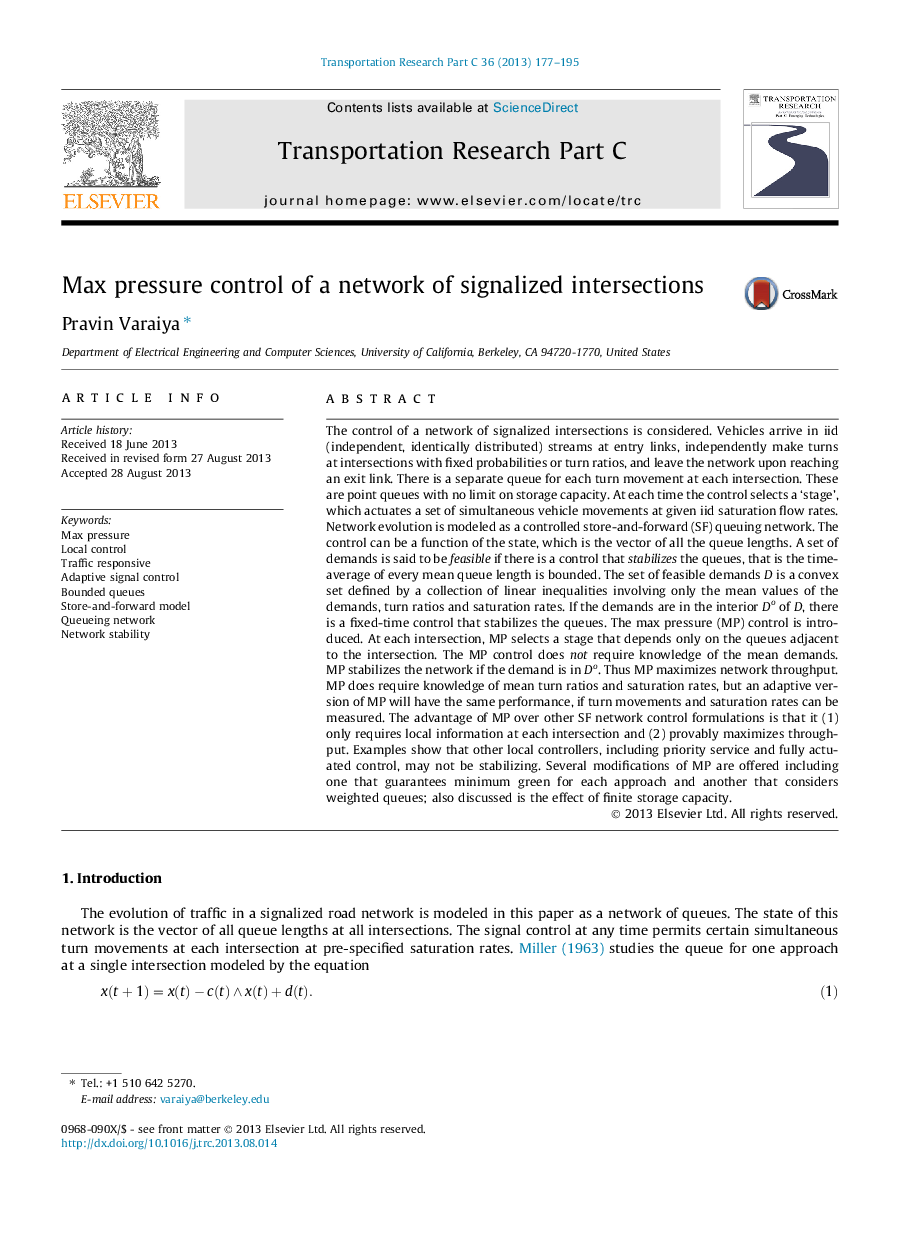| Article ID | Journal | Published Year | Pages | File Type |
|---|---|---|---|---|
| 6937258 | Transportation Research Part C: Emerging Technologies | 2013 | 19 Pages |
Abstract
The control of a network of signalized intersections is considered. Vehicles arrive in iid (independent, identically distributed) streams at entry links, independently make turns at intersections with fixed probabilities or turn ratios, and leave the network upon reaching an exit link. There is a separate queue for each turn movement at each intersection. These are point queues with no limit on storage capacity. At each time the control selects a 'stage', which actuates a set of simultaneous vehicle movements at given iid saturation flow rates. Network evolution is modeled as a controlled store-and-forward (SF) queuing network. The control can be a function of the state, which is the vector of all the queue lengths. A set of demands is said to be feasible if there is a control that stabilizes the queues, that is the time-average of every mean queue length is bounded. The set of feasible demands D is a convex set defined by a collection of linear inequalities involving only the mean values of the demands, turn ratios and saturation rates. If the demands are in the interior Do of D, there is a fixed-time control that stabilizes the queues. The max pressure (MP) control is introduced. At each intersection, MP selects a stage that depends only on the queues adjacent to the intersection. The MP control does not require knowledge of the mean demands. MP stabilizes the network if the demand is in Do. Thus MP maximizes network throughput. MP does require knowledge of mean turn ratios and saturation rates, but an adaptive version of MP will have the same performance, if turn movements and saturation rates can be measured. The advantage of MP over other SF network control formulations is that it (1) only requires local information at each intersection and (2) provably maximizes throughput. Examples show that other local controllers, including priority service and fully actuated control, may not be stabilizing. Several modifications of MP are offered including one that guarantees minimum green for each approach and another that considers weighted queues; also discussed is the effect of finite storage capacity.
Related Topics
Physical Sciences and Engineering
Computer Science
Computer Science Applications
Authors
Pravin Varaiya,
